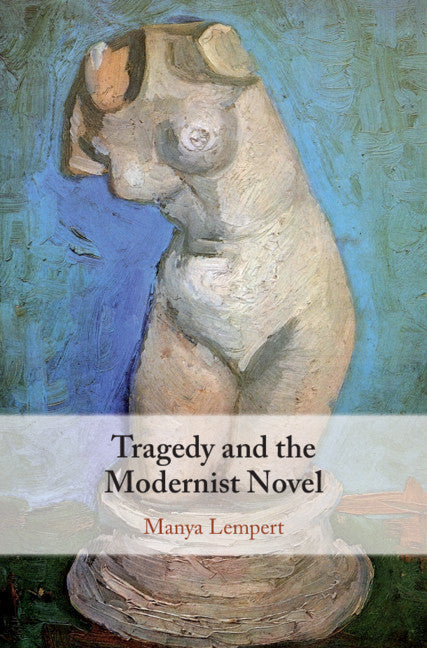Freshly Printed - allow 10 days lead
Couldn't load pickup availability
Tragedy and the Modernist Novel
This book brings together the study of modern fiction, tragedy, chance, and the natural world.
Manya Lempert (Author)
9781108496025, Cambridge University Press
Hardback, published 10 September 2020
290 pages
23.5 x 16 x 2 cm, 0.5 kg
'… Lempert's book is an important contribution to the study of modernism … Recommended.' A. P. Pennino, Choice
This study of tragic fiction in European modernism brings together novelists who espoused, in their view, a Greek vision of tragedy and a Darwinian vision of nature. To their minds, both tragedy and natural history disclosed unwarranted suffering at the center of life. Thomas Hardy, Virginia Woolf, Albert Camus, and Samuel Beckett broke with entrenched philosophical and scientific traditions that sought to exclude chance, undeserved pains from tragedy and evolutionary biology. Tragedy and the Modernist Novel uncovers a temporality central to tragic novels' structure and ethics: that of the moment. These authors made novelistic plot the delivery system for lethal natural and historical forces, and then countered such plot with moments of protest - characters' fleeting dissent against unjustifiable harms.
1. Introduction: modernist tragedy
1.1 Attic novelists
1.2 Tragedy versus philosophy
1.3 Tragic nature
1.4 Modernism versus nihilism
1.5 Tragic sociality and overview of chapters
2. Hardy's theory of tragic character
2.1 Neo-Greek modernism
2.2 Hardy versus Plato and Aristotle
2.3 Two Tesses
2.4 Sue's reversals
2.5 Scapegoating
2.6 Nightmare skies
3. Woolf and Darwin: tragic time scales and chances
3.1 Immitigable trees
3.2 Darwinian Tuch?
3.3 Jane Ellen Harrison's ritual
3.4 Gilbert Murray's tragedy
3.5 Friedrich Nietzsche's love of fate
3.6 Not 'Amor fati' but 'It is enough!'
3.7 Woolf's tragic chances
4. Camus's modernist forms and the ethics of tragedy
4.1 Camus's idea of tragedy
4.2 The moment in Camus and Woolf
4.3 Camus versus Sartre
4.4 Janine: a moment of being
4.5 Jacques and Jessica: tragic affirmation
4.6 The absurd Meursault
4.7 The 'good modern nihilist' Clamence
5. Beckett: against nihilism
5.1 The unnamable: 'alleviations of flight from self'
5.2 Losing species: from Mahood to worm
5.3 Beckett's Oedipus and Lispector's mystic
5.4 Nihilism and recoil from nihilism
5.5 Beckett's ancient philosophy
5.6 No counter-tragic calm
5.7 Company: 'That was I. That was I then.'
5.8 Palliative moments
Bibliography
Index.
Subject Areas: Classical history / classical civilisation [HBLA1], Classic fiction [pre c 1945 FC], Literary studies: fiction, novelists & prose writers [DSK]


